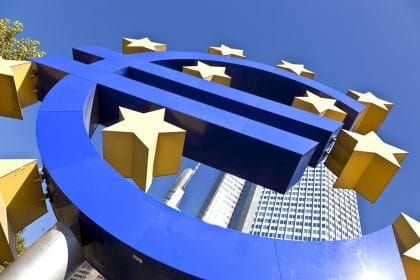Pushing forward its development with digital currencies, the ECB has applied for a trademark of the “Digital Euro”. The central bank will soon release its assessment for the use of Digital Euro and its impact on the region’s economy.
The European Central Bank (ECB) has been initiating measures in the further progress of its digital currency. On Thursday, October 1, the ECB applied for a trademark to the “Digital Euro” term, as per the Bloomberg report.
The publication notes that the ECB lawyers from Blog Legal applied for the “Digital Euro” trademark at the European Union Intellectual Property Office on September 22. However, it hasn’t been granted so far. This clearly goes to show ECB’s enthusiasm for adopting digital currencies in the near term.
The ECB President and former IMF Chief Christine Lagarde has been a vocal supporter of digital currencies. Taking up the leadership, Lagarde told the members of the European Parliament that the public airing of “Digital Euro” is only a matter of few days. Addressing the EU lawmakers, Lagarde said:
“The Eurosystem has so far not made a decision on whether to introduce a digital euro. But, like many other central banks around the world, we are exploring the benefits, risks and operational challenges of doing so. We have a duty to play an active role in balancing the risks and benefits of innovation in payments, so that money continues to serve Europeans well.”
The race for issuing central bank digital currencies (CBDCs) has accelerated further. Recently, the People’s Bank of China (PBoC) expressed its desire to be the first to issue a CBDC. The ECB is currently preparing a report about its assessment to launch Digital Euro. The report will include all the pros and cons of having a CBDC in the European retail markets. The ECB President has also called on educating businesses and workers in the EU to take advantage of the digital economy. Christine Lagarde has. however, clearly mentioned that the Digital Euro CBDC won’t replace cash.
ECB’s War With Private Stablecoin Operators
While the ECB has been working on its CBDC, it has gone hard against other private stablecoin operators. Central Bank’s Board Member Benoit Coeure recently warned that private stablecoins like Libra pose a major threat to Europe’s monetary sovereignty. Almost 40% of the world population currently uses Facebook.
So if the social media giant brings Libra to the market it will certainly have a massive footprint in the market. No wonder why the regulators have been after Facebook. Coeure has also asked regulators to quickly act against all stablecoin operators and bring tougher rules for them:
“It’s out of the question to allow them to develop in a regulatory void for their financial service activities because it’s just too dangerous. We have to move more quickly than we’ve been able to do up until now”.
In another development, the European Union aims to bring more clarity on crypto use. Recently, it unveiled its new digital finance and retail strategy for blockchain and cryptocurrencies. Besides, in another report, the Deutsche Bank stated that CBDCs can potentially reduce the dominance of the dollar (USD) as the world’s reserve currency.
next